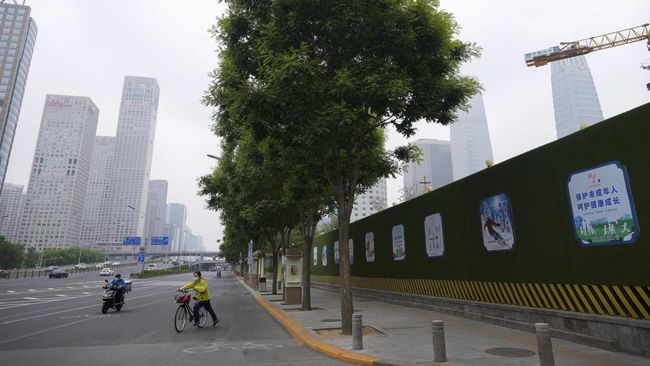Jakarta, CNBC Indonesia – The threat of a global recession began to haunt the Asian economic recovery. Slowing factory activity has been seen in Japan, South Korea, and Australia, leaving policymakers in a difficult position between supporting growth or curbing inflation.
Japan’s purchasing managers’ index (PMI) fell to 52.2 in July, its lowest level in 10 months. This slowdown illustrates how the Japanese economy is still struggling to get out of the impact of the Covid-19 pandemic but on the other hand has had to struggle with inflation.
Factory activity also weakened in Australia as indicated by the sloping PMI this month. The PMI was recorded at 55.7 in July, down from the 56.2 recorded in June.
ADVERTISEMENT
SCROLL TO RESUME CONTENT
–
Factory activity in Australia has slowed due to supply chain disruptions, rising raw material costs and the global economic slowdown.
“The PMI in July shows the manufacturing sector is slowing due to slack demand. The new wave of Covid-19 is also starting to have an impact on services,” said Marcel Thieliant, senior economist at Capital Economics in response to Japan’s PMI. Reuters.
Japan is facing the seventh wave of Covid-19. On Thursday, the State of Sakura reported an additional 186,000 cases, a drastic increase compared to the 150,000 reported the previous day.
Additional cases in Tokyo even penetrated 31,878. Tokyo’s daily cases of over 30,000 have not been recorded throughout the pandemic.
The Japan Times reported high cases, it is feared that it will have a major impact on services such as food, vacations, to retail sales.
Besides Japan and Australia, South Korea also recorded a slowdown in PMI. In June 2022, South Korea’s PMI stood at 51.3, its lowest level in three months.
Marcel added that the gloomy PMI developments in the Asian and Australian giants are a few indications that the shadows of a recession are starting to emerge.
“Improvements are also not visible from any sector,” he said.
In the midst of sloping factory activity, countries in Asia and the world also have to face heavy pressure from rising benchmark interest rates. The United States (US) central bank The Federal Reserve (The Fed) has raised its benchmark interest rate by 150 bps this semester.
The European Central Bank (ECB) also just announced a 50 bps hike in its benchmark interest rate on Thursday evening. This is the first increase in 11 years.
The aggressive steps of the Fed and central banks forced some central banks in Asia to follow the flow of the increase to fight inflation while preventing the depreciation of their currencies.
Central banks of India, Malaysia, Singapore and South Korea have raised their benchmark interest rates this year to curb inflation and prevent currency depreciation. On the other hand, the central banks of China, Japan, Thailand and Indonesia chose to maintain their benchmark interest rates to boost growth.
China’s economy, which is the second largest in the world, slowed sharply in the second quarter of 2022 due to rising Covid-19 cases. China’s economy grew 0.4% (yoy), far below the 4.8% in the first quarter of 2022.
The economy of the Bamboo Curtain country is expected to continue to slow going forward due to the global economic downturn and recession.
Asian Development Bank (ADB) has lowered its p . projectionChina’s economy to 4.0% this year. In April last, ADB still estimated China could grow 5.0%. India’s economic projection was also lowered from 7.5% to 7.2%.
ADB says China’s and global economic slowdown has slowed Asia’s growth rate slowed to 4.6% this year. The projection is lower than the 5.2% projection submitted by ADB in April.
ADB Chief Economist Albert Park said China’s slowdown, inflation spike, Russian-Russian warUkraine, and tightening monetary policy could slow the pace of Asian economies.
“These global uncertainties are very important to address because they will continue to pose risks to the recovery of the region,” said Albert, in an ADB statement.
Next Article
Jokowi Worried About Recession, Will Indonesia Be Affected?
–
–
(is/is)
–


